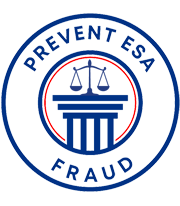Landlords
Landlords, with very few exceptions, must adhere to the American with Disabilities Act and the Fair Housing Act when it comes to tenants with disabilities. Landlords happily provide reasonable accommodation for the disabled so that the disabled may fully enjoy their new home and common areas. However, no landlord wants to be a victim of a scam.
Apparent disabilities are easy to recognize and makes providing reasonable accommodation easy and enjoyable process to provide. However, non-apparent disabilities are not easily recognized. As a result, the disabled person must ask in writing for reasonable accommodation. The landlord is within his rights to ask for confirmation that the disabled person is truly disabled. The landlord may ask for a letter from their doctor or mental health professional. If the doctor provides the letter and the animal is deemed a service dog. Then the landlord may ask only two questions – “Are you disabled?” and “What task does the animal perform?” That is it. However, is the letter is written by a doctor or a mental health professional authorizing a therapy animal or emotional support animal, then further inquiry is allowed to avoid being scammed.
Service animals must be dogs (there is a weird legal case in which a person was allowed to have a service miniature horse, but that person lived in a very rural community). So if a landlord is told by their tenant that they have a service cat, this is simply not true. However, the Housing and Urban Development Agency (HUD) recognizes therapy animals for qualified disabled people. A therapy animal maybe a dog, cat, bird, etc. and is used only for airline travel and living in their home. This is governed by a “reasonableness standard”. In other words, a tenant cannot say they have an emotional support tiger, wolf, or bear.
To avoid being scammed, here is what to do:
1. Look to see if the doctor or a mental health professional is in the same state as your property. If so, it passed the first test. It does not matter that the doctor is in another part of the state, telemedicine laws most probably will allow the diagnosis. If the doctor or mental health professional is not in your state, look to see if they are licensed in your start. If they are not licensed in your state, the doctor or mental health professional is practicing beyond the scope of their state license.
2. Assess the animal individually. You cannot deny an emotional support animal or therapy animal based on breed, size, reputation of animal, etc. However, you may assess the animal individually. Look at the animal’s temperament, it is under the owner's control at all times? Does it put other tenants at harm? Is it destroying the common areas? These are ground for removal or denial of reasonable accommodation.
3. Remember to treat everyone equally. Under no circumstances do you develop policies that single out people with disabilities. It does not matter how the diagnosis letter was obtained. If a disabled person wants to search for therapists or doctors via the internet, that does not exclude them from reasonable accommodation. However, you may inquire if the diagnosis was made via synchronous communication. In other words, did the diagnosed disabled person actually speak, IN REAL TIME, to a therapist? If not, it’s a scam. There are reputable online providers who are doing it right. You may feel comfortable that these websites are adhering to strict Prevent ESA Fraud criteria. (click here for a list of Prevent ESA Fraud certified companies).
Prevent ESA Fraud also provides services for landlords and property management companies to verify the veracity, accuracy, and legality of requested reasonable accommodation.
If you are a landlord who has suffered damages by a fake authorization letter diagnosis. Please fill out the form below.

